A rich tapestry of cultures, customs, and peoples may be found in the wide and varied continent of Africa. It’s a place where history, heritage, and power converge to create an unforgettable experience for travelers. For those looking to explore the cultural and political might of the continent, visiting Africa to discover the 7 African powers and their culture should be at the top of your bucket list. This journey will immerse you in the ancient, modern, and evolving stories of African civilizations, rulers, and their lasting impact on the world. From the powerful ancient kingdoms to the dynamic contemporary nations, Africa holds a powerful allure for any traveler looking to understand its true essence.
In this blog post, we’ll take a closer look at seven African countries and their unique powers, both in terms of culture and influence. These 7 African powers country have played pivotal roles in shaping Africa and the world as we know it today. By the end of this guide, you’ll gain a deeper appreciation for Africa’s rich cultural heritage and why it’s essential to experience these 7 African powers firsthand.
1. Nigeria: The Powerhouse of West Africa
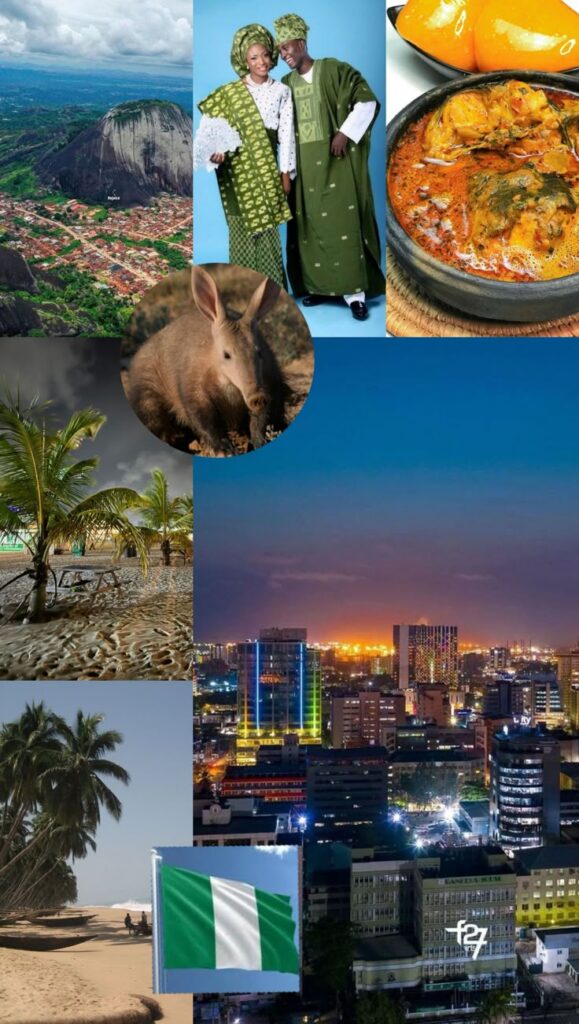
Nigeria stands as one of the most powerful countries of 7 African powers , not only because of its vast natural resources but also due to its influential cultural and political presence. Nigeria’s power extends beyond its economy into the realms of music, fashion, and politics.
Culture and Heritage:
Nigeria is a multiethnic nation where more than 500 different languages are spoken. The two largest ethnic groups are the Yoruba, who reside primarily in the southwestern part of Nigeria, and the Hausa-Fulani, who dominate the north. The Igbos, located in the southeastern region, also have a significant influence on the country’s politics and economy. These three groups play a key role in the nation’s governance, commerce, and cultural preservation.
The music scene in Nigeria, especially the Afrobeats genre, has achieved international recognition. Nigerian music has gained international recognition thanks to musicians like Burna Boy, Wizkid, and Davido, who have strengthened Africa’s cultural influence.
Political Influence:
With a population of more than 200 million, Nigeria is the most populous nation in Africa. As the largest economy in Africa, it wields significant influence on the continent’s political and economic affairs. Nigeria’s role as a leader in regional organizations such as the Economic Community of West African States (ECOWAS) and the African Union (AU) makes it a key player in the continent’s geopolitics.
Key Attractions:
- Lagos: Nigeria’s commercial center, renowned for its famous beaches and vibrant city life.
- Abuja: The capital city, home to beautiful architecture and landmarks like the National Mosque and the Nigerian National Christian Centre.
- The Niger River and Zuma Rock: Natural wonders that highlight Nigeria’s stunning landscapes.
2. South Africa: The Southern Giant
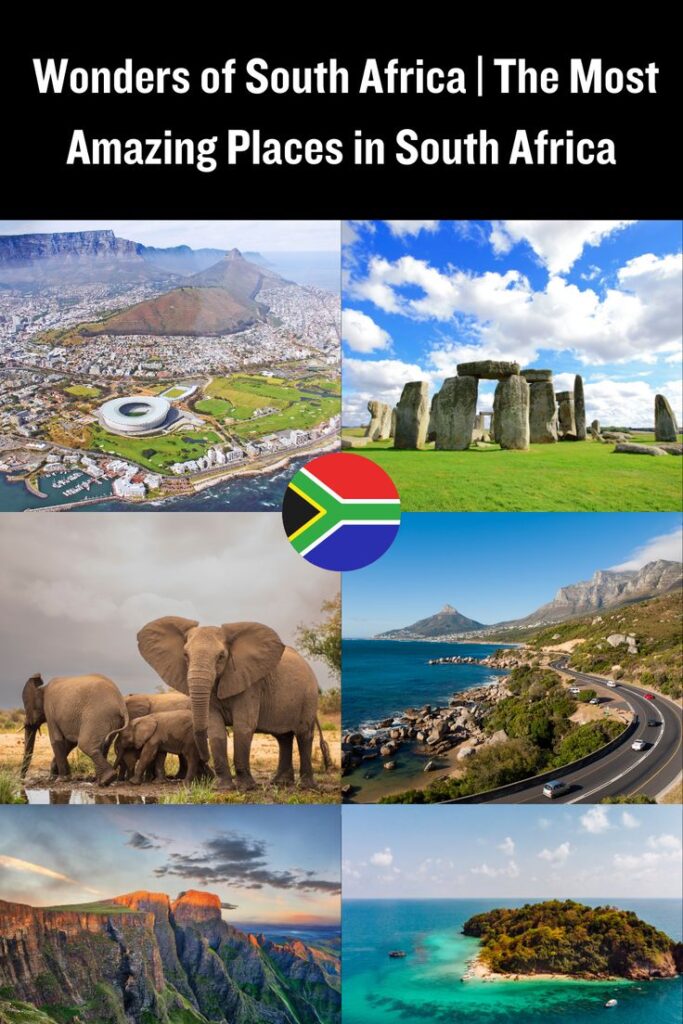
South Africa is often regarded as the economic powerhouse of southern Africa. With its diverse economy, progressive policies, and significant global influence, South Africa has become a symbol of modern African power.
Culture and Heritage:
South Africa is famous for its multicultural society, with 11 official languages and a history shaped by the Apartheid era. The nation’s transition to democracy under Nelson Mandela’s leadership is a testament to its strength and resilience. Today, the country is a mix of traditional African cultures and Western influences, creating a unique cultural blend that defines its identity.
South Africa’s diverse cultures are reflected in its music, art, and cuisine. The influence of the Zulu, Xhosa, and Sotho peoples, among others, contributes to the rich tapestry of South African culture. In music, genres like jazz, kwaito, and gospel resonate deeply with the people, while the country’s art scene showcases powerful narratives of the struggle for freedom and identity.
Political Influence:
South Africa is a member of several key international organizations, including the United Nations and the African Union. The country is also an important member of BRICS, a group of emerging economies that includes Brazil, Russia, India, China, and South Africa. This participation strengthens South Africa’s political and economic influence internationally.
Key Attractions:
- Cape Town: Known for its iconic Table Mountain, pristine beaches, and the vibrant Victoria & Alfred Waterfront.
- The Big Five can be found in Kruger National Park, one of Africa’s largest wildlife reserves.
- Nelson Mandela spent a large portion of his life in Robben Island jail.
3. Egypt: The Ancient Power

Egypt’s history as one of the world’s earliest civilizations still echoes throughout the continent. As the cradle of African civilization, Egypt has long been a center of cultural, political, and spiritual power.
Culture and Heritage:
Egypt’s culture is steeped in the rich traditions of the ancient Egyptians. The Pharaohs’ rule, the construction of the pyramids, and the development of writing systems such as hieroglyphics, shaped much of the history of Africa and the world. Modern Egypt combines this ancient heritage with Islamic traditions and Christian influences, creating a rich cultural mosaic.
Egypt’s contributions to mathematics, architecture, and religion continue to resonate today, and its archaeological sites remain some of the most visited on the planet.
Political Influence:
Egypt is a major player in the Middle East and North Africa (MENA) region. It has long been a critical voice in Arab politics and plays a significant role in Africa’s economic and diplomatic affairs. Egypt is a founding member of the African Union and holds a strategic position in global trade, particularly due to the Suez Canal, which is one of the world’s most important maritime trade routes.
Key Attractions:
- One of the Seven Wonders of the Ancient World is the Great Pyramids of Giza.
- The Egyptian Museum: Home to one of the most extensive collections of ancient Egyptian artifacts.
- The Nile River, which is ideal for historical investigation and cruises, is the lifeblood of Egyptian culture.
4. Kenya: The Heart of East Africa
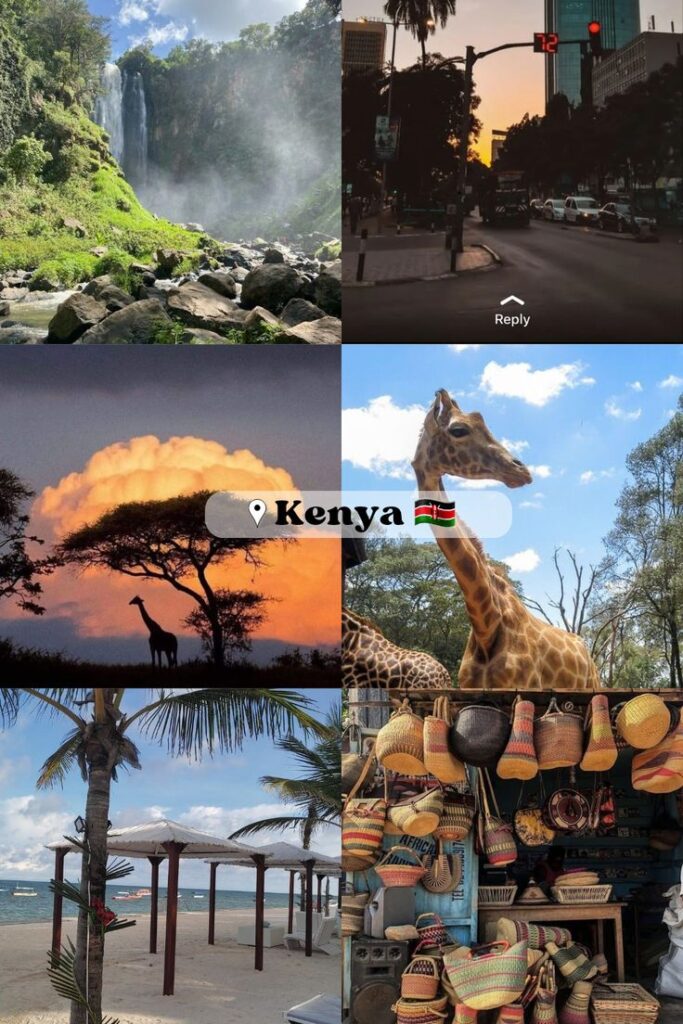
Kenya is a dynamic country with a powerful presence in East Africa. Known for its beautiful landscapes, thriving wildlife, and cultural vibrancy, Kenya continues to be a major hub for commerce and tourism in the region.
Culture and Heritage:
Kenya is home to around 40 ethnic groups, each of which has its own language and traditions. The Kikuyu people, the country’s largest ethnic group, play a major role in Kenya’s economy and politics. The Maasai, famous for their traditional way of life, are also an iconic symbol of Kenyan culture.
Kenya’s music scene is eclectic, with influences ranging from traditional tribal songs to contemporary genres such as benga, hip hop, and reggae. The country also has a rich literary tradition, with authors like Ngũgĩ wa Thiong’o and Binyavanga Wainaina gaining international acclaim.
Political Influence:
One of East Africa’s most powerful and stable nations is Kenya. It plays a leading role in the East African Community (EAC) and the African Union. Kenya also has strong diplomatic ties with Western countries, making it a key player in the region’s geopolitics.
Key Attractions:
- Nairobi: The bustling capital city, offering a unique blend of urban life and wildlife, including the Nairobi National Park.
- Maasai Mara National Reserve: A world-renowned safari destination, famous for the Great Migration.
- The second-highest peak in Africa, Mount Kenya, is ideal for hiking and exploration.
5. Ethiopia: The Ancient and Resilient Power
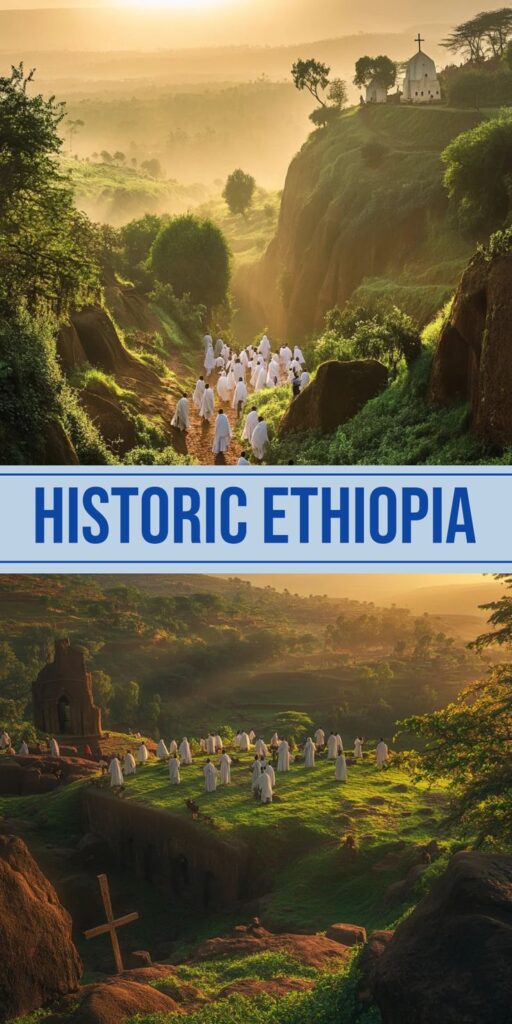
With a rich history spanning thousands of years, Ethiopia is among the world’s oldest civilizations. Ethiopia is a proud and resilient country that is well-known for its distinctive culture, language, and customs.
Culture and Heritage:
Ethiopia is the birthplace of human civilization, with a history that includes the Kingdom of Aksum, one of Africa’s greatest empires. The country’s Christian heritage is deeply ingrained in its culture, with Orthodox Christianity being the predominant religion. Ethiopia’s unique script, known as Ge’ez, is one of the oldest written languages still in use.
Ethiopian culture is deeply rooted in its music, dancing, and food.Traditional instruments like the krar and the masinko, along with distinctive styles of singing and dance, are celebrated throughout the country.
Political Influence:
The Organization of African Unity (OAU), subsequently known as the African Union (AU), had Ethiopia as one of its founding members. The country plays a significant role in African diplomacy and peacekeeping efforts, particularly in Somalia and Sudan.
Key Attractions:
- Lalibela: The UNESCO World Heritage site’s rock-hewn churches are an amazing example of prehistoric engineering.
- Rocky peaks and deep valleys make up the Simien Mountains National Park’s stunning landscape.
- The capital, Addis Ababa, is home to thriving markets and the headquarters of the African Union.
6. Ghana: The Gateway to West Africa
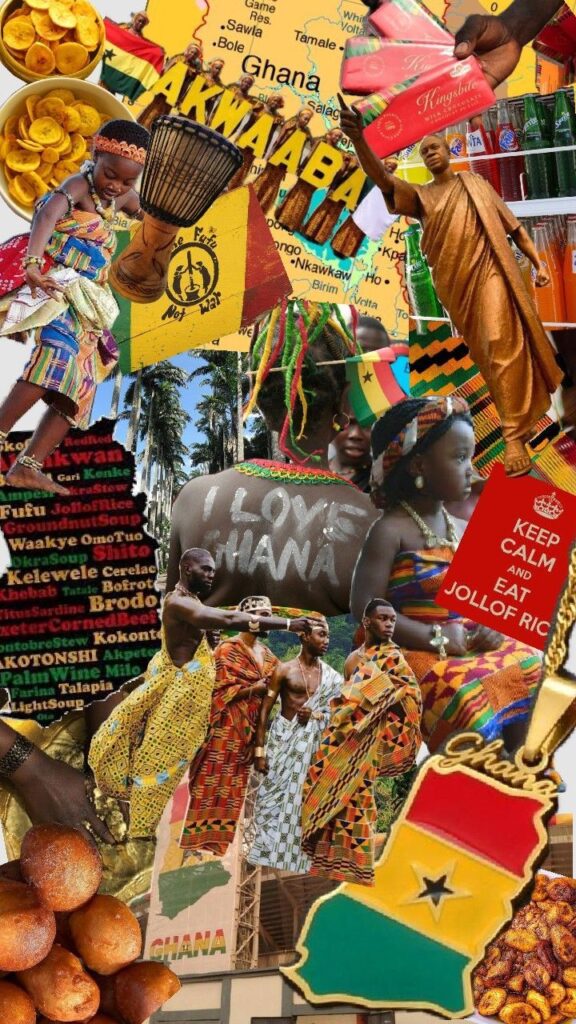
With an increasing impact on regional and international events, Ghana has become a political and economic force in West Africa. It is known for its historical significance, especially in relation to the transatlantic slave trade, and for being one of the first African countries to gain independence.
Culture and Heritage:
Ghana’s culture is rooted in the traditions of its various ethnic groups, including the Akan, Mole-Dagbani, and Ewe peoples. Traditional festivals, music, and dances play an essential role in the daily lives of Ghanaians. The country’s vibrant arts scene includes wood carving, bead-making, and weaving, which are integral parts of its cultural heritage.
Political Influence:
Ghana is one of the most stable and democratic countries in Africa, with a reputation for peaceful transitions of power. It is a key member of the Economic Community of West African States (ECOWAS) and the African Union, playing an influential role in regional diplomacy.
Key Attractions:
- Cape Coast Castle: A historical site that was a major point in the transatlantic slave trade.
- Kakum National Park: Known for its rainforest canopy walk and wildlife.
- Accra: The capital city, filled with vibrant markets, museums, and cultural centers.
7. Morocco: The North African Jewel
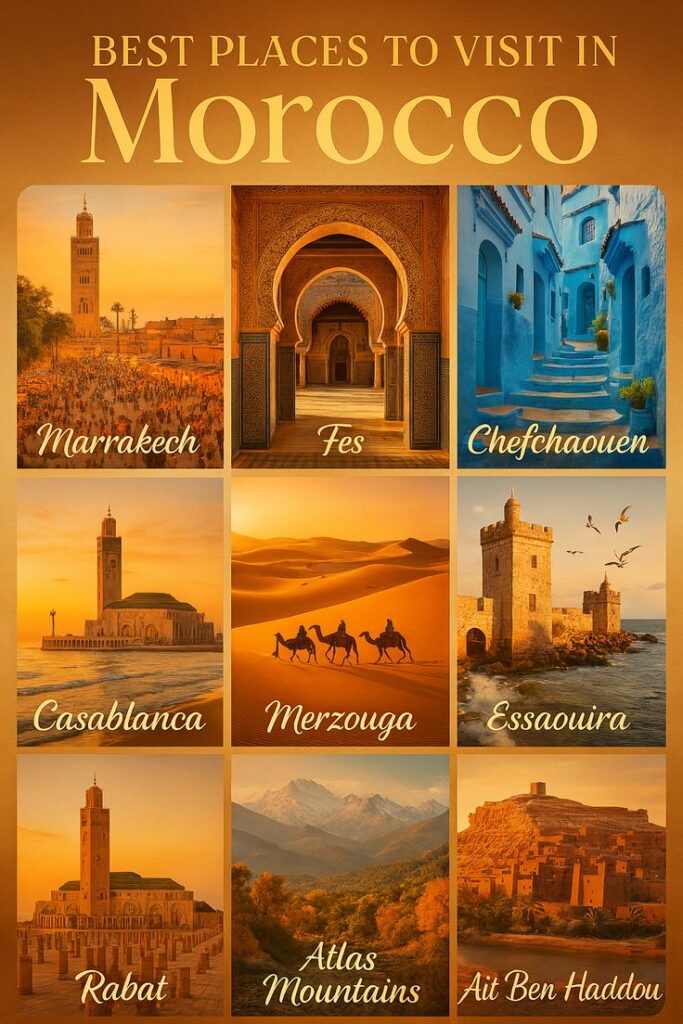
Morocco is a country that blends aspects of the contemporary world with its ancient customs.Morocco’s strategic location, cultural diversity, and economic growth demonstrate its power at the intersection of Europe, Africa, and the Middle East.
Culture and Heritage:
Moroccan culture is a fusion of Arab, Berber, and European influences. The country’s historic cities like Marrakesh, Fes, and Casablanca are filled with stunning architecture, including the famous Moroccan riads, which reflect the nation’s intricate craftsmanship.
The music of Morocco, including genres like gnawa and chaabi, and its food, such as tagine and couscous, are integral parts of the country’s rich cultural identity.
Political Influence:
Morocco’s strategic location at the tip of North Africa gives it a significant role in both regional and global politics. The country is a member of the Arab League and the African Union, and it plays a vital role in the politics of the Mediterranean and Sub-Saharan Africa.
Key Attractions:
- Marrakesh: Known for its bustling souks, the iconic Jemaa el-Fnaa square, and the beautiful Majorelle Garden.
- Atlas Mountains: Beautiful scenery and ancient Berber towns make these mountains perfect for trekking.
- Sahara Desert: A vast expanse of sand dunes, perfect for camel rides and stargazing.
In conclusion, your investigation of the 7 African powers is still pending.
Africa is a continent of immense power, not just in terms of political and economic influence but also in its diverse cultures, rich history, and vibrant traditions. Whether you’re drawn to the ancient empires of Egypt and Ethiopia, the modern political giants like Nigeria and South Africa, or the cultural gems of Ghana, Kenya, and Morocco, Africa promises an enriching experience that will leave a lasting impact.
These 7 African powers offer a unique glimpse into the heart and soul of the continent. Visiting Africa to discover these countries and their cultures will provide you with unparalleled insights into what makes Africa truly powerful. So pack your bags, set your sights on these incredible nations, and let Africa reveal its untold stories to you.
What are the 7 African powers mentioned in the blog post?
The 7 African powers discussed in the blog post are Nigeria, South Africa, Egypt, Kenya, Ethiopia, Ghana, and Morocco
Why are these 7 African countries considered powerful?
These countries are considered African 7 powers due to their economic, political, and cultural influence in Africa and beyond.
What is South Africa’s role in Africa’s power dynamics?
South Africa is an economic leader in southern Africa, with a highly diverse culture, a strong economy, and global political influence through BRICS and the African Union.
What makes South Africa’s culture so diverse?
South Africa’s culture is a blend of African traditions and European influences, shaped by its history of apartheid and the fight for democracy.
What can tourists experience in South Africa?
Tourists can experience diverse activities, including safaris in Kruger National Park, exploring Cape Town, and learning about South Africa’s history at Robben Island.
